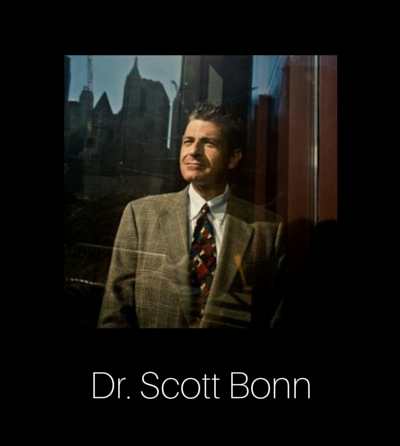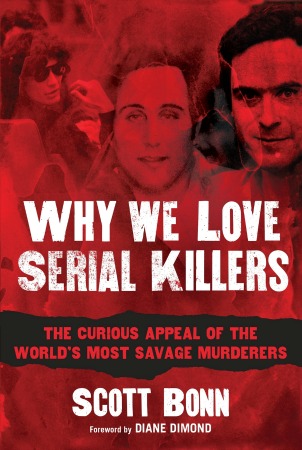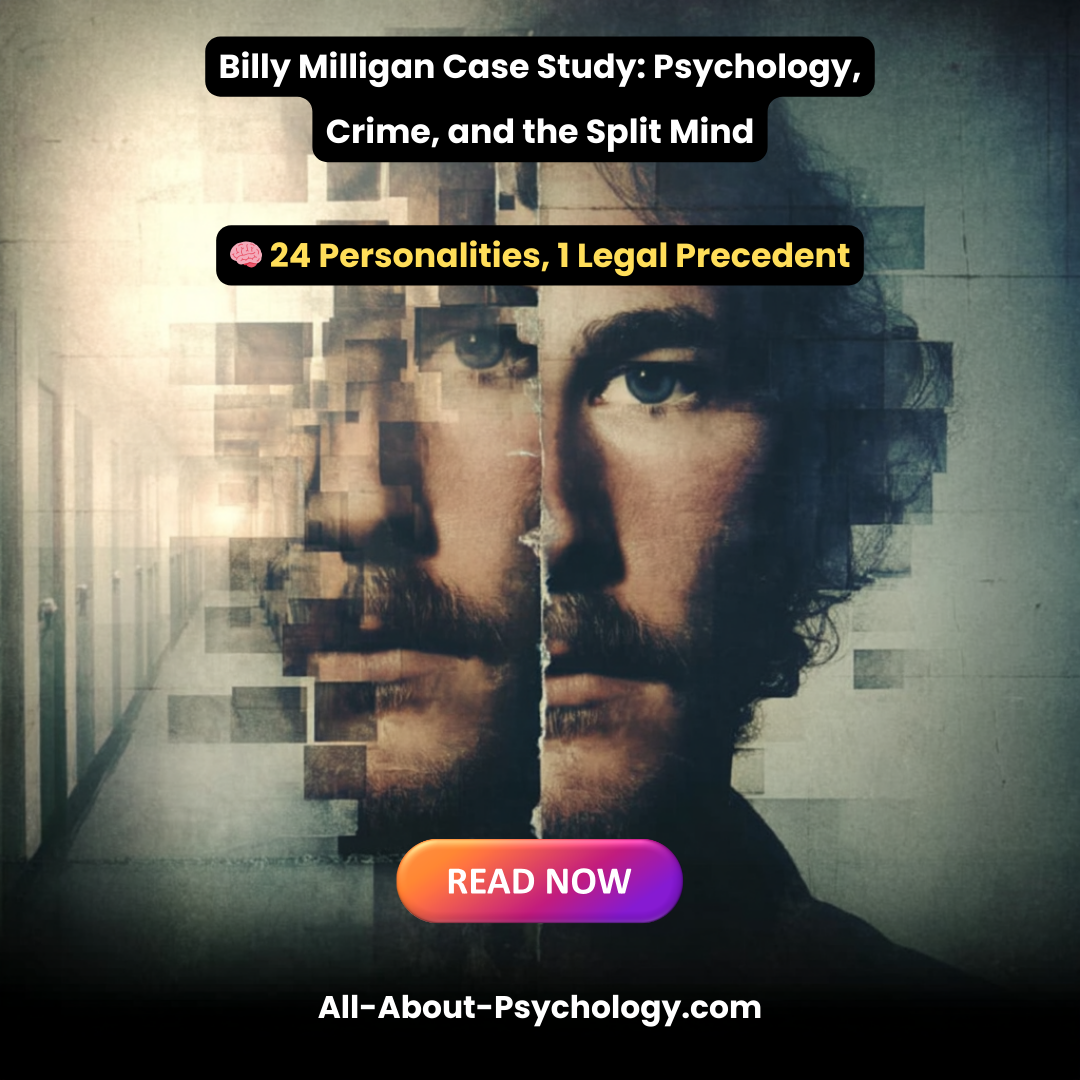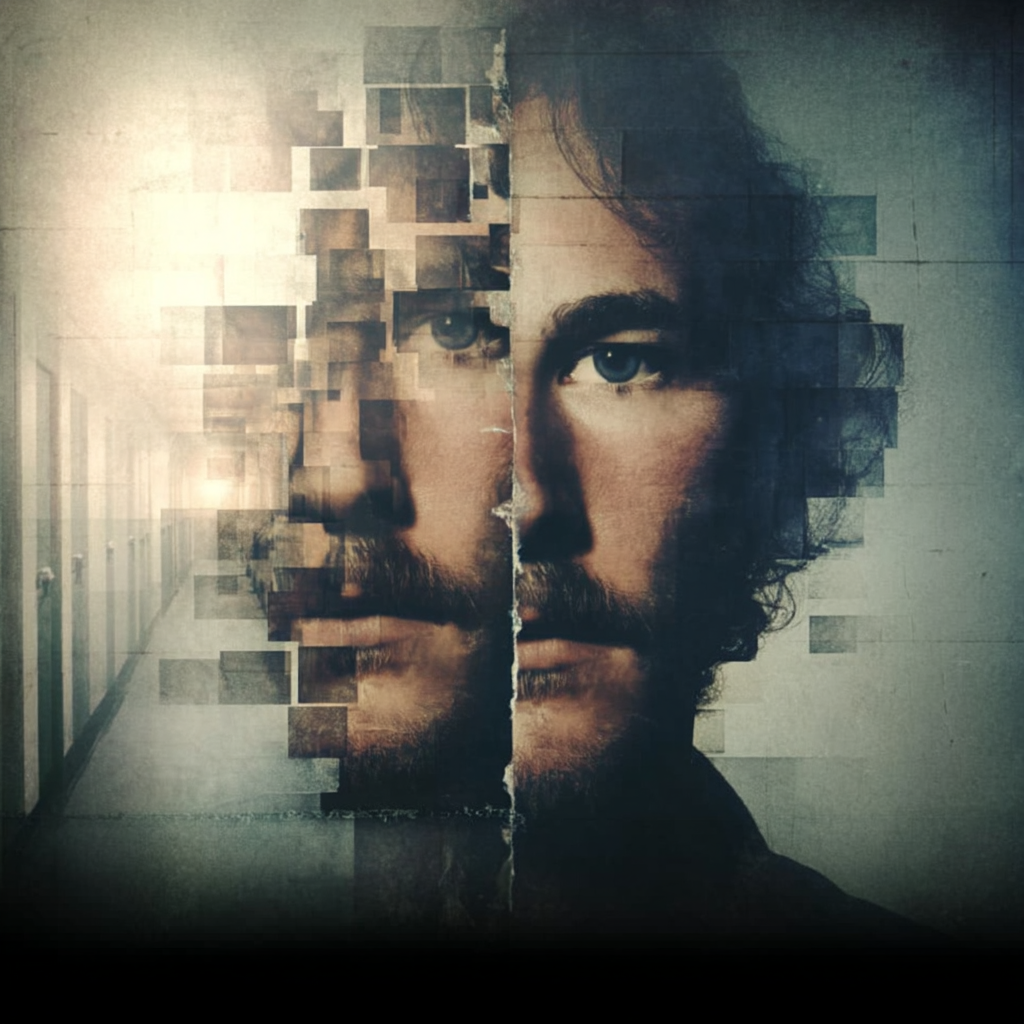Psychology Classics On Amazon

Interview with Dr. Scott Bonn
Want To Study Psychology?
A professor of criminology and sociology at Drew University, Dr. Scott Bonn is an acclaimed author and renowned expert on the behavior and motivations of criminals. A respected media commentator, Dr. Bonn is frequently called upon to share his insights into various types of crime, including white-collar, state crime, bullying, domestic violence, sexual assault and serial homicide.
Q & A
Please tell us about your path to teaching criminology?
Prior to becoming a criminologist and college professor, I was an advertising and media executive for more than twenty years. While serving as vice president for a couple of different television networks in the 1990s, including NBC, it became apparent to me that a crime news story is an entertainment product just like an episode of CSI or Criminal Minds. Sensationalized and graphic entertainment news generates large network television audiences and major advertisers are willing to pay handsomely to present their commercials to those audiences. Therefore, it is in the best financial interests of network television producers to make their crime news stories as shocking and enticing as possible to viewers.
I have developed a unique, integrated, and interdisciplinary theory called "critical communication" to explain how state officials, including politicians and law enforcement, and the news media together shape public opinion on complex social issues such as homicide, capital punishment, illicit drugs, abortion and terrorism.
I teach a variety of courses in criminology, sociology of deviance, media and crime, and criminal justice. My primary research interests include serial homicide, white-collar crime, state crime, domestic violence and how the media influence public attitudes and opinions.
As a professor of criminology and sociology do you ever draw upon psychological theory and research as part of your academic work?
Yes, given my interest in serial killers, many of whom are psychopaths, I have been very inspired by the work of Dr. Robert Hare. A prominent researcher in the field of criminal psychology, Dr. Hare has led research efforts to develop a series of assessment tools to evaluate the personality traits and behaviors attributable to psychopaths. Dr. Hare and his associates developed the Psychopathy Check List Revised (PCL-R) and its derivatives which provide a clinical assessment of the degree of psychopathy that an individual possesses.
The instruments developed by Dr. Hare and his colleagues attempt to measure a distinct cluster of personality traits and socially deviant behaviors which fall into four factors: interpersonal, affective, lifestyle and antisocial. The interpersonal traits include glibness, superficial charm, grandiosity, pathological lying and manipulation of others. The affective traits include a lack of remorse and/or guilt, shallow affect, lack of empathy and failure to accept responsibility. The lifestyle behaviors include stimulation-seeking behavior, impulsivity, irresponsibility, parasitic orientation and a lack of realistic life goals. Antisocial behaviors include poor behavioral controls, early childhood behavior problems, juvenile delinquency, revocation of conditional release and committing a variety of crimes.
|
An individual who possesses all of the interpersonal, affective, lifestyle and antisocial personality traits measured by PCL-R is considered a psychopath. A clinical designation of psychopathy in the PCL-R test is based on a lifetime pattern of psychopathic behavior. The results to date suggest that psychopathy is a continuum ranging from those who possess all of the traits and score highly on them to those who also have the traits but score lower on them. This PCL-R allows for a maximum overall score of forty. |
|
A minimum score of thirty is required in order to designate someone as a psychopath. The scores for those who are psychopaths vary greatly, revealing that very high to low levels of the condition exist among those who have it. Non-criminal psychopaths generally score in the lower range (close to thirty) while criminal psychopaths, especially rapists and murderers, tend to score in the highest range (close to forty). No two psychopaths score exactly the same on the test. The average non-psychopath will score around five or six on the PCL-R test.
One of your research areas is elite deviance. What exactly is elite deviance?
Back in 1956, the late sociologist C. Wright Mills observed that a small group of wealthy and powerful individuals control America's dominant institutions (i.e., politics, economy and the military) and they are insulated from public scrutiny. Mills called this group the power elite. Interestingly, Mills was echoed in 1961 by President Eisenhower in his farewell address when he warned of the self-serving and criminal acts of the "military-industrial complex" - that is, his term for the power elite.
A central contradiction of the power elite is that they frequently violate the very laws they are sworn to uphold. Mills argued that bound by mutual interests, the power elite periodically commit acts of elite wrongdoing (e.g., dumping toxic waste or starting wars) and enact policies (e.g., deregulation of dangerous industries) that are designed to preserve their political power and protect their profits. Mills stated that elite acts that cause either physical or social harm represent the "higher immorality of the power elite" or simply elite deviance.
Acts of elite deviance take place in part because of the way corporate, political, and military intelligence institutions are structured - that is, they are complex bureaucracies. Significantly, bureaucratic organizations are structured in ways that regularize crime and deviance. More specifically, bureaucracies are goal-oriented, amoral entities which exist to maximize profits and/or expand their own power. These goals encourage an ends over means mentality among the top commanders of bureaucracies.
For example, the top executives of a public, for-profit corporation are well aware that the board of directors and shareholders are much more interested in meeting quarterly profit goals than they are in the actual decisions and actions required to meet those goals.
What led you to write your latest book 'Why We Love Serial Killers: The Curious Appeal of the World's Most Savage Murderers'
As far back as I can recall I have always loved monsters. While growing up in Ohio in the 1970s, I loved horror movies, including the definitive and iconic Frankenstein (1931) and the now classic Halloween (1978). In more recent times I have come to love the Hollywood tales of fictional serial predators such as Hannibal "The Cannibal" Lecter in The Silence of the Lambs and John Doe in Se7en.
I have always rooted for my favorite movie monsters to prevail although I knew they would not. Now, as a criminologist living in New York, I am fascinated by real-life serial killers. I study the crimes of infamous predators such as Jeffrey Dahmer and I have had the opportunity to actually meet and/or correspond with two of the most notorious serial killers of the twenty-first century - that is, David Berkowitz, the so-called Son of Sam and Dennis Rader, known by the moniker BTK which stands for "Bind, Torture, Kill." My interactions with them were unforgettable. The revelations I gained for my new book will likely astound readers and give them new insights into the way these ruthless predators think and plan their murders.
(See following link for full details of Dr Bonn's book)
Why We Love Serial Killers: The Curious Appeal of the World's Most Savage Murderers
What surprised you the most as you researched the topic?
I learned that serial killers elicit morbid fascination among the public similar to calamities such as train wrecks and earthquakes. People can't help watching the grotesque public spectacle unfold and they receive a euphoric rush as a reward for being a witness to it. Serial killers have a visceral appeal that is fueled by adrenaline, a hormone that has a powerful, stimulating and even addictive effect on the human brain. If you doubt this, think of the child who rides a roller coaster over and over until he or she becomes physically ill.
In many ways, serial killers are for adults what monster movies are for children - that is, scary fun! However, the pleasure an adult receives from watching serial killers can be difficult to admit, and may even trigger feelings of guilt. In fact, the research conducted for this book reveals that many people who are fascinated with serial killers refer to it as a guilty pleasure.
The average person who has been socialized to respect life, and who also possesses the normal range of emotions such as love, shame, pity and remorse cannot comprehend the workings of a pathological mind that would compel one to abduct, torture, rape, kill, engage in necrophilia, and occasionally even eat another human being. The incomprehensibility of such actions drives society to understand why serial killers do incredibly horrible things to other people who often are complete strangers. As such, serial killers appeal to the most basic and powerful instinct in all of us-that is, survival. The total disregard for life and the suffering of others exhibited by serial killers shocks our sense of humanity and makes us question our safety and security.
At the same time, however, the public's fascination and guilty love affair with serial killers obscures the fact that they actually perform a function in society by helping to clarify certain moral boundaries that separate good from evil, and human from monster. In contemporary popular culture, serial killers have become the ultimate boogey men. Stylized and one-dimensional media images of blood-thirsty monsters relieve society of its necessity to really comprehend the complex reality of serial killers.
The news media and law enforcement authorities tell us that serial killers are pure evil, and that their evilness is proven by the terrible deeds they perpetrate. Accepting this simplistic message at face value can be very comforting to the public. The social construction of serial killers as evil monsters suggests that, despite all of our failings, the rest of us are not so bad after all. Therefore, despite the incredible irony and contradiction presented by this conclusion, serial killers actually have a function in the social order.
What are the biggest misconceptions about serial killers?
Sex and violence sell in the news and entertainment media and serial killers offer both in the extreme. Therefore, it is not surprising that serial killers have become central players on the public stage. However, the prevailing image of the serial killer in the popular culture is distorted and reflects a stereotype that they are all dysfunctional, young, white males. The popular culture image also maintains that serial killers are inhuman monsters and represent pure evil. The facts about serial killers are actually quite different than the popular myths about them. Contrary to popular mythology, there are female serial killers, racial minority serial killers, and highly successful, functional serial killers who have unsuspecting spouses, children, co-workers and friends. I wrote this book in part to set the record straight and present the truth about serial killers - a truth which is far more compelling than fiction.
What would you say is original about your book - namely, how would you distinguish it from other books on serial killers?
This book is unique in its examination of serial killers as popular culture personalities. Unlike most other books on this subject, the primary focus of Why We Love Serial Killers is not on the crimes of serial killers. Much has already been written about that. Although this book offers many new insights into serial homicide and provides shocking facts and anecdotes for true crime enthusiasts, the really unique contributions of this work lie in explaining why serial killers fascinate so many people, and how and why serial killers are transformed into morbid popular culture personalities or "celebrity monsters," as I call them.
Thus, Why We Love Serial Killers offers insights into the dark side of society itself and its powerful appetite for the macabre. This book fills a niche by providing a new and penetrating look at the public's fascination with serial murder that is groundbreaking in its approach and conclusions.
Is there one thing you can point to that is more likely than anything else to account for a person's fascination with serial killers?
I have learned that the public loves serial killers for a number of complex and interrelated reasons. First, they are rare in the business of murder with perhaps twenty-five or so operating at any given time in the U.S. They and their crimes are exotic and tantalizing to people much like traffic accidents and natural disasters. Serial killers are so extreme in their brutality and so seemingly unnatural in their behavior that people are drawn to them out of intense curiosity. Second, they generally kill randomly, choosing victims based on personal attraction or random opportunities presented to them. This factor makes anyone a potential victim, even if the odds of ever encountering one are about the same as being attacked by a great white shark. Third, serial killers are prolific and insatiable, meaning that they kill many people over a period of years rather than killing one person in a single impulsive act, which is the typical pattern of murder in the U.S. Fourth, their behavior is seemingly inexplicable and without a coherent motive such as jealousy or rage. They are driven by inner demons that even they may not comprehend. Many people are morbidly drawn to the violence of serial killers because they cannot understand it and feel compelled to. Fifth, they have a visceral appeal for the public similar to monster movies because they provide a euphoric adrenaline rush. Consequently, their atrocity tales in the news and entertainment media are addictive. Finally, they provide a conduit for the public's most primal feelings such as fear, lust and anger.
The serial killer represents a lurid, complex and compelling presence on the social landscape. There appears to be an innate human tendency to identify or empathize with all things - whether good or bad - including serial killers. To learn more you will have to read my book.
What projects are you currently working on?
I am currently involved in the development of a documentary film on famous unsolved murders and I am also writing a book about the little discussed connection between suicide and mass murder in the U.S.
The harsh reality of suicide is shrouded in mystery. Unknown to most Americans is the fact that suicide is sharply on the rise, particularly among the middle-aged. Suicide used to be concentrated primarily among the elderly. The dramatic rise in suicide among the middle-aged is a disturbing new trend over the last ten years.
Negative and alienating social forces have made suicide the new murder as frustrated and fearful Americans turn their anger onto themselves and take their own lives in unprecedented numbers. These same social forces also explain the sharp rise in mass public shootings as fatalistic individuals increasingly kill themselves and others in catastrophic acts of violent rage.
I will examine the suicide-mass murder linkage and present my conclusions in a forthcoming book which is tentatively titled Suicide is the New Murder: The Suicide-Mass Murder Connection. This book will seek to educate the public about these connected social problems and offer suggestions for solving them.
Connect With Dr. Scott Bonn
Recent Articles
-
All About Psychology
Apr 22, 25 02:37 PM
A psychology website designed to help anybody looking for detailed information and resources. -
Sponsor a Psychology Website with Over a Million Yearly Visitors
Apr 22, 25 10:07 AM
Showcase your brand to a huge, engaged audience. Discover how to sponsor a psychology website trusted by over a million visitors a year. -
Billy Milligan Case Study: Psychology, Crime, and the Split Mind
Apr 18, 25 09:10 AM
Was Billy Milligan a fractured victim—or a manipulative genius? This Billy Milligan case study explores the psychology behind one of history’s most controversial trials.
New! Comments
Have your say about what you just read! Leave me a comment in the box below.Go Back To The Psychology Expert Interviews Page






New! Comments
Have your say about what you just read! Leave me a comment in the box below.